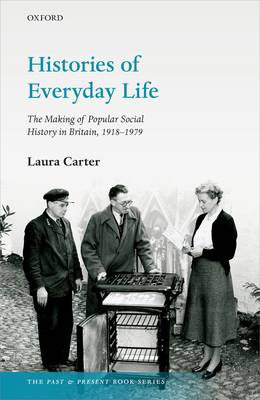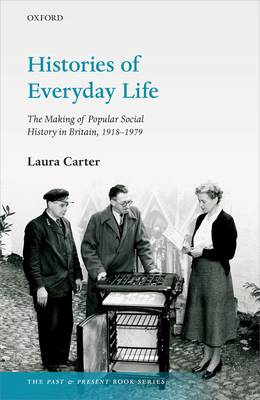
- Afhalen na 1 uur in een winkel met voorraad
- Gratis thuislevering in België vanaf € 30
- Ruim aanbod met 7 miljoen producten
- Afhalen na 1 uur in een winkel met voorraad
- Gratis thuislevering in België vanaf € 30
- Ruim aanbod met 7 miljoen producten
Zoeken
€ 177,45
+ 354 punten
Omschrijving
Histories of Everyday Life is a study of the production and consumption of popular social history in mid-twentieth century Britain. It explores how non-academic historians, many of them women, developed a new breed of social history after the First World War, identified as the 'history of everyday life'. The 'history of everyday life' was a pedagogical construct based on the perceived educational needs of the new, mass democracy that emerged after 1918. It was popularized to ordinary people in educational settings, through books, in classrooms and museums, and on BBC radio. After tracing its development and dissemination between the 1920s and the 1960s, this book argues that 'history of everyday life' declined in the 1970s not because academics invented an alternative 'new' social history, but because bottom-up social change rendered this form of popular social history untenable in the changing context of mass education. Histories of Everyday Life ultimately uses the subject of history to demonstrate how profoundly the advent of mass education shaped popular culture in Britain after 1918, arguing that we should see the twentieth century as Britain's educational century.
Specificaties
Betrokkenen
- Auteur(s):
- Uitgeverij:
Inhoud
- Aantal bladzijden:
- 288
- Taal:
- Engels
- Reeks:
Eigenschappen
- Productcode (EAN):
- 9780198868330
- Verschijningsdatum:
- 25/10/2021
- Uitvoering:
- Hardcover
- Formaat:
- Genaaid
- Afmetingen:
- 162 mm x 241 mm
- Gewicht:
- 594 g

Alleen bij Standaard Boekhandel
+ 354 punten op je klantenkaart van Standaard Boekhandel
Beoordelingen
We publiceren alleen reviews die voldoen aan de voorwaarden voor reviews. Bekijk onze voorwaarden voor reviews.











